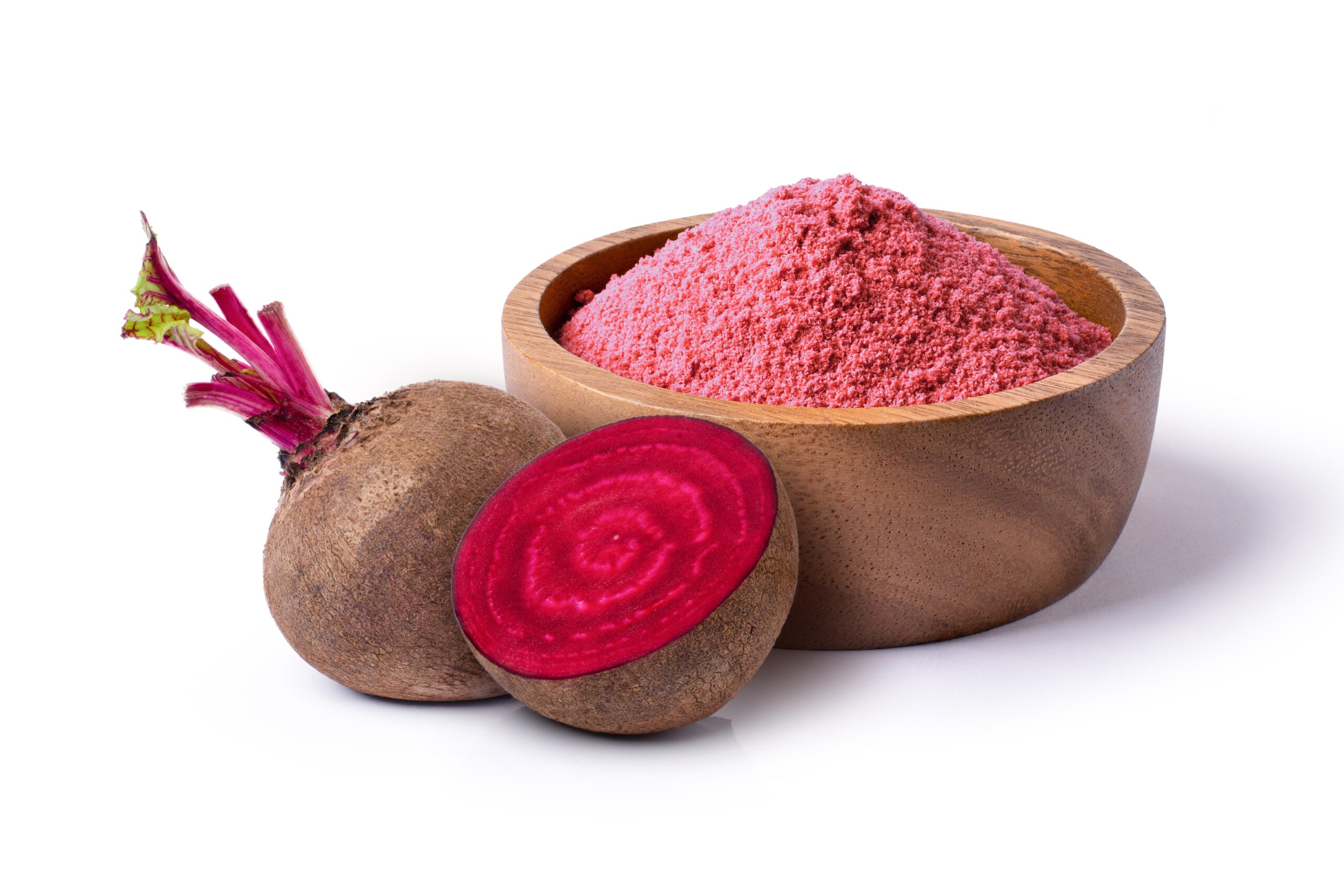Beets, scientifically known as Beta vulgaris, are a colorful and nutrient-packed root vegetable that has been consumed for centuries. Beyond their deliciously earthy flavor and vibrant hue, beets offer an impressive array of health benefits. Whether enjoyed roasted, pickled, juiced, or raw, this versatile vegetable packs a nutritional punch that can contribute to overall well-being. In this comprehensive article, we will explore the numerous advantages of including beets in your diet and how they can support your health in various ways.
What Nutrients Do Beets Contain?
Beets are celebrated for their exceptional nutritional profile, which includes vitamins, minerals, antioxidants, and dietary fiber. Here’s a breakdown of some key nutrients found in beets:
- Vitamins: Beets are a good source of essential vitamins such as vitamin C, which supports the immune system, and folate (vitamin B9), which is important for cell division and DNA synthesis.
- Minerals: Beets provide essential minerals like potassium, magnesium, and iron. Potassium helps regulate blood pressure, while iron is crucial for oxygen transport in the blood.
- Dietary Fiber: Beets are rich in dietary fiber, which aids digestion, promotes regular bowel movements, and contributes to a feeling of fullness.
- Antioxidants: Beets contain antioxidants such as betalains, which give them their distinctive color. Betalains have anti-inflammatory and antioxidant properties and may help protect cells from oxidative stress.
- Nitrates: Beets are a natural source of nitrates, which can be converted into nitric oxide in the body. Nitric oxide plays a role in blood vessel dilation, contributing to improved blood flow and potentially reducing blood pressure.
Health Benefits of Beets
Here is a list of some of the key health benefits of beets…
Heart Health
Beets have garnered attention for their potential to support heart health. The nitrates in beets may help relax blood vessels, leading to improved blood flow and lower blood pressure. Regular consumption of beets may reduce the risk of hypertension and cardiovascular disease.
Improved Athletic Performance
Some studies suggest that dietary nitrates in beets can enhance exercise performance by increasing oxygen delivery to muscles. Athletes and active individuals often use beet juice as a natural performance enhancer.
Digestive Health
The dietary fiber in beets promotes healthy digestion and regular bowel movements. Beets can be particularly beneficial for individuals with constipation or digestive discomfort.
Weight Management
Beets are low in calories but high in fiber, making them an excellent addition to weight management plans. The fiber content helps control appetite and prevents overeating.
Cognitive Function
Beets contain nitrates, which have been linked to improved cognitive function and blood flow to the brain. Regular consumption may help support brain health and reduce the risk of cognitive decline.
Anti-Inflammatory Effects
The betalains and other antioxidants in beets possess anti-inflammatory properties. This can be beneficial for individuals with inflammatory conditions such as arthritis.
Detoxification
Beets are often touted as a detoxifying food due to their potential to support liver function. They contain compounds that assist in the detoxification process and may aid in the removal of harmful substances from the body.
Stable Blood Sugar
Despite their natural sweetness, beets have a relatively low glycemic index. This means they have a minimal impact on blood sugar levels and can be included in a diabetic-friendly diet.
How To Fit Beets Into Your Diet
Beets are a versatile vegetable that can be enjoyed in various ways. Here are some delicious options:
- Roasted Beets: Roasting beets brings out their natural sweetness and enhances their flavor. Simply scrub, trim, and roast them with a drizzle of olive oil and your favorite seasonings.
- Beet Salad: Combine cooked and thinly sliced beets with fresh greens, goat cheese, and a balsamic vinaigrette for a delightful salad.
- Beet Juice: Fresh beet juice is a nutritious beverage that can be consumed on its own or mixed with other fruits and vegetables for a refreshing blend.
- Pickled Beets: Pickled beets are a classic side dish that adds a tangy twist to meals. They can also be used in salads or sandwiches.
- Raw Beets: Grated or thinly sliced raw beets can be added to salads for a crunchy texture and a burst of color.
- Beet Soup: Borscht, a traditional Eastern European soup, is made with beets and other vegetables, offering a hearty and nutritious meal.
- Beet Smoothies: Blend beets with fruits like apples, berries, and oranges for a nutrient-packed smoothie.
Potential Side Effects of Beets
While beets are generally safe and nutritious, there are a few precautions to keep in mind:
- Kidney Stones: Beets are naturally high in oxalates, which can contribute to the formation of kidney stones in susceptible individuals. If you have a history of kidney stones, it’s advisable to consume beets in moderation and stay well-hydrated.
- Red Stools: Beets can sometimes cause your urine and stools to appear red or pink. This is harmless but can be alarming if you’re not aware of it.
- Iron Absorption: While beets contain iron, they also contain compounds that can inhibit iron absorption. If you rely heavily on beets for iron intake, consider combining them with vitamin C-rich foods to enhance iron absorption.
The Benefits of Beets: Conclusion
Beets, with their vibrant color and rich nutritional profile, are a valuable addition to a healthy diet. Whether you are looking to support heart health, enhance exercise performance, promote digestive well-being, or simply enjoy a flavorful and nutrient-packed vegetable, beets have much to offer.
By incorporating beets into your culinary repertoire, you can savor their earthy sweetness while reaping the numerous health benefits they provide. From lowering blood pressure to supporting cognitive function and promoting overall vitality, beets are a vibrant and nutritious addition to any meal plan. Embrace the ruby gem of the vegetable world and experience the many advantages it offers to your health and well-being.
Here are several superfood supplements that contain beets: Green Drink Supplements
REFERENCES
- Cleveland Clinic
- WebMD
- Healthline
- Beetroot as a functional food with huge health benefits: Antioxidant, antitumor, physical function, and chronic metabolomics activity
- The Potential Benefits of Red Beetroot Supplementation in Health and Disease
- Functional properties of beetroot (Beta vulgaris) in management of cardio-metabolic diseases
- The benefits and risks of beetroot juice consumption: a systematic review
- Beetroot, A Remarkable Vegetable: Its Nitrate and Phytochemical Contents Can be Adjusted in Novel Formulations to Benefit Health and Support Cardiovascular Disease Therapies
I’m not just a supplement analyst. I’m an extremely qualified one! I am a Certified Nutrition Coach (CNC) and actually received my certification directly from the National Academy of Sports Medicine. I am also a Nutrition & Wellness Consultant, certified by the American Fitness Professionals Association (AFPA).



